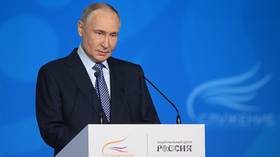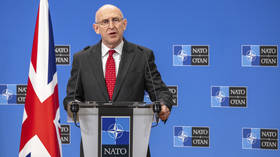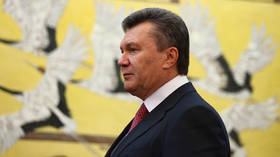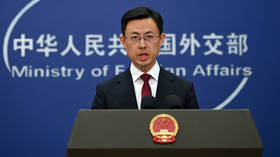Oil prices surge after OPEC+ fails to reach deal to boost global crude production
The Organization of the Petroleum Exporting Countries (OPEC) and allied producers failed to agree terms on an oil output deal once again on Monday, prompting crude prices to rise to a three-year high.
Brent crude jumped 94 cents, or 1.3%, to $77.12 a barrel by market closing time in London – the highest since 2018. US oil benchmark WTI surged $1.50, or 2%, to $76.65 a barrel.
Also on rt.com Oil market holding its breath as OPEC+ struggles to reach production dealOPEC+ called off talks on output levels with no new date to resume discussions, leaving the oil market in jeopardy. Critics speculate that the future of the organization itself is uncertain, with two of its key members at loggerheads after some 60 years of controlling the globe’s oil prices.
The core of the problem is a proposed eight-month extension on output curbs, which was rebuffed by the United Arab Emirates. The UAE, one of OPEC’s largest oil producers, wants its output raised, which is strongly opposed by the organization’s heavyweight Saudi Arabia, eager to keep a tight lid on output.
OPEC+ was set on cautiously increasing output by 400,000 barrels a day until December 2022, instead of the earlier agreed deadline of April 2022. The UAE, however, said it would only accept the extension proposal if it was granted the same terms for calculating its output quota as the Saudis. The UAE’s current quota dates back to 2018, which they view as proportionally too low and therefore unfair. The UAE repeatedly stated that it would accept the output increase but not the deal extension, but the Saudis insisted that the two terms must be agreed upon together.
Also on rt.com India’s oil demand expected to return to normal by end of yearLast year, in the midst of the coronavirus pandemic crisis, crude plunged below $20 a barrel. The situation forced OPEC+ to cut production by some 10 million barrels a day, or about 10% of pre-pandemic global demand. Production levels have now been partly restored, with about four million barrels a day returned to the market.
For more stories on economy & finance visit RT's business section













